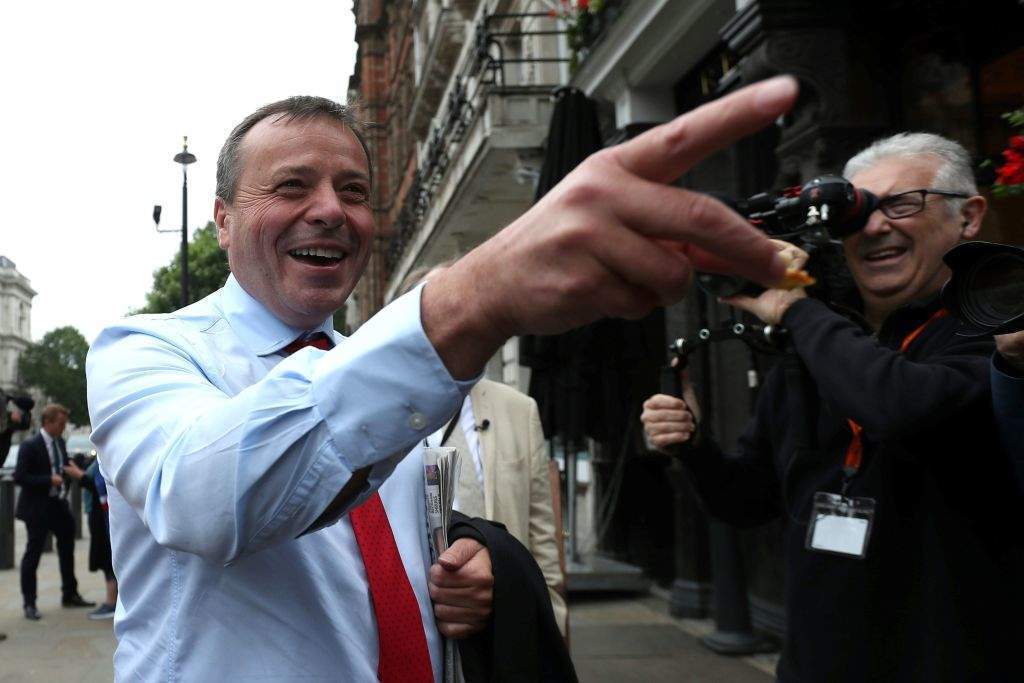
Finally. The full scale of Arron Banks digital delinquency has been laid bare. After months of work, Information Commissioner Elizabeth Denham has exposed LeaveEU’s data war to win the Brexit vote.
And the sanction? A fine of £135,000 for the campaign and Banks’ Eldon Insurance. That’s it. That appears to be the price of breaking the rules to influence our democracy. Hardly a deterrent.
That’s why Parliament must surely, finally rally itself to launch a proper Mueller-style enquiry into the secret war for Brexit.
Here we have the biggest national decision since the Second World War. Denham says she can’t rule out “whether individuals were unknowingly influenced to vote a certain way” by data crimes. Meanwhile, the Electoral Commission has referred Brexit’s biggest funder to the National Crime Agency because it has “reasonable grounds to suspect” that Banks “knowingly concealed and sought to conceal the true circumstances” where the money came from.
Is it too much to ask that someone, somewhere rallies itself to join up the dots?
But a Mueller-style enquiry into the secret truth of Brexit’s bad boys can only be step one.
Step two must be wholesale legal change to stem the digital threat to our democracy.
Today, we know Russia uses alliances with new, extreme parties plus digital propaganda to divide it’s opponents.
Russia’s hybrid battleplan takes aim at the messiness of our digital democracy and seeks to divide us by stirring up as much hate speech on either side of an argument as possible.
If we look at the 45 new parties that have been created in Europe over the past 10 to 20 years, we see a clear majority that have some sympathy with Russia, including Germany’s AFD, Austria’s FPO, the Golden Dawn in Greece, Jobbik in Hungary, the Front National in France, the Northern League in Italy and, of course, Ukip. Nigel Farage famously said that Vladimir Putin was the leader he most admired.
Digital campaigning weaponises this alliance so there’s now massive risk of foreign money being used to fund “dark social ads” with incredible reach on the internet.
Our laws are hopelessly out of date and leave our democracy wide open to abuse by foreign powers. In fact, the Chairman of the Electoral Commission, Sir John Holmes, is openly warning that we now face a perfect storm putting “our democratic processes in peril”.
Social media giants enjoy a legal privilege invented before they were born, which lets them operate as platforms, not publishers. The 2000 EU eCommerce Directive exempts Facebook, YouTube or Twitter from liabilities like becoming message carriers for hate speech, death threats or foreign-backed subversion of democracy.
Meanwhile, Ofcom does not police video content if it is consumed online – even though that is where children consume over half of their content. And the Advertising Standards Authority is reluctant to regulate political advertising. It has the power to ban political adverts from broadcast – but not targeted social media campaigns.
Nor does the Electoral Commission have the power or financial forensic skills to properly where campaign money really comes from. So many of us have spent months trying to get either the Met or the National Crime Agency to investigate.
The lunacy of our current position is summarised by a simple fact. The Congress of the United States currently has more power to investigate and act on this threat to the UK than our own institutions.
Section 256 of the Sanctions Act 2017, requires Congress to seek from the president an annual report into Russian interference into the elections and referenda of America’s allies, principal amongst which are our good selves. There is now no such power in the hands of this Parliament.
Yet when I brought amendments to create a new UK version of the Honest Ads Act proposed in the American Congress, so voters can finally learn who is targeting them with what “news” and with whose cheques, the Government voted it down.
George Orwell once wrote, ‘If liberty means anything at all, it means the right to tell people what they do not want to hear.” I know there are lots of people who don’t want to know if the Brexit vote was hacked and perverted. But, sometimes in life we have to face, full frontal, the inconvenient truths.



